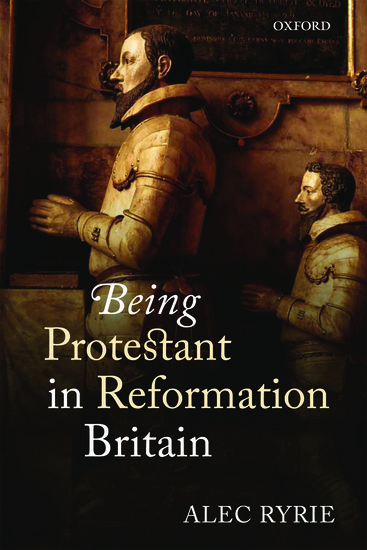By Alec Ryrie
I’ve been working on the ‘lived experience’ of early modern religion: what it was actually like to be a Protestant in 16th or 17th century Britain. And I’ve become more and more convinced there’s a crucial element of the story almost completely missing from the standard accounts: children.
Read most histories of early modern religion and you could be forgiven for concluding that there were no children in this period. But we are dealing with huge numbers of people: perhaps a third of the population of early modern England was under 12. And while every adult had of course been a child at some point, large numbers of children never became adults.
The sources are very thin. Most early modern Protestants saw childhood as a period of mere depravity, needing only correction. The period’s most popular devotional work, Lewis Bayly’s The Practice of Piety, asked, “what is youth but an vntamed Beast? … Ape-like, delighting in nothing but in toyes and baubles?” But a few patterns do emerge. Saying grace at table was, almost routinely, a child’s role in a family. Children’s patterns of prayer can be glimpsed sometimes – learning prayers by rote, or making vows. And we do have occasional testimonies of children’s actual religious experience – a seven year old finding “unexpressible joys” in reading and prayer, a four year old stargazing and meditating on God’s power.

But we would be stuck with these glimpses if it not for two extraordinary accounts written in the 1630s. Richard Norwood and Elizabeth Isham had both read Augustine’s Confessions, newly translated into English, and had learned from it that it was worth paying close attention to how God had worked in their lives before their actual conversions. So Norwood described his schoolboy psalm-singing, and how, aged seven or eight, he was “taken with great admiration of some places” in the Bible. He remembered (and counted as a sin) “at several times reasoning … about whether there were a God”. Adults assured him that God loved him, but he was not sure “how they could know it was so”. And when he tried to share his enthusiasm for Scripture with his parents, “they made me little answer (so far as I remember) but seemed rather to smile at my childishness”. This made him wonder whether what the preachers taught was true, “or whether elder people did not know them to be otherwise, only they were willing that we children should be so persuaded of them, that we might follow our books the better and be kept in from play.” Norwood was that rare thing: an adult who could remember what it was really like to be a child.
Or again, the Northamptonshire gentlewoman Elizabeth Isham described how her religion took shape in counterpoint to her mother. She was taught to pray from infancy, but when she was eight years old, “I came to a fuller knowledge of thee”, through praying earnestly “to avoyde my mothers displeasure”. Her mother’s wrath was no joke: in her rages, Judith Isham had a servant hold her daughter down, the better to beat her. Elizabeth recalled that “in these dayes feareing my parents I had no other refuge but to flie unto thee”.
It was her grandmother who showed her another way. When the old lady was ill, and the nine year old Elizabeth was caring for her, she was struck by the delight her grandmother took in her devotional reading. For Elizabeth, as for so many other children before and since, books were her liberation. As her reading accelerated from her tenth year, her religion blossomed. It also brought greater peace with her mother, who took advice from a clergyman friend and developed a new way of dealing with her daughter. When she saw Elizabeth misbehave, instead of flying into a rage, she would “holde her fan afore her face”, praying for patience and judgement. This gave Elizabeth time to reflect on her error, so that as soon as the fan was lowered she would go and ask forgiveness, and would be set a penitential task, “which I performed with the more dilligence she having delt so well with mee”. We rarely come so close to a happy ending.
These are very individual stories, and that is part of the point: children are individuals, and neither happy nor unhappy families all resemble one another. But they do remind us that children take their own lives, including their religion, immensely seriously, and can be very finely attuned to managing the loving, unpredictable, condescending, inattentive and sometimes incomprehensibly punitive adult world.
They also suggest to me that there is much more to be done here. We have long learned the importance of gender to any serious historical analysis. It is time to pay attention to this equally pervasive division, and to this even more forgotten slice of humanity.
Alec Ryrie studied History and Theology at the universities of Cambridge, St Andrews, and Oxford. He is now Head of Theology and Religion and Professor of the History of Christianity at Durham University. His most recent book, Being Protestant in Reformation Britain, published in April 2013. His previous books include The Age of Reformation (2009), The Sorcerer’s Tale (2008), The Origins of the Scottish Reformation (2006) and The Gospel and Henry VIII (2003).
Subscribe to the OUPblog via email or RSS.
Subscribe to only religion articles on the OUPblog via email or RSS.
Subscribe to only history articles on the OUPblog via email or RSS.
Image credit: Courtesy of Alec Ryrie. Do not use without permission.


Recent Comments
There are currently no comments.